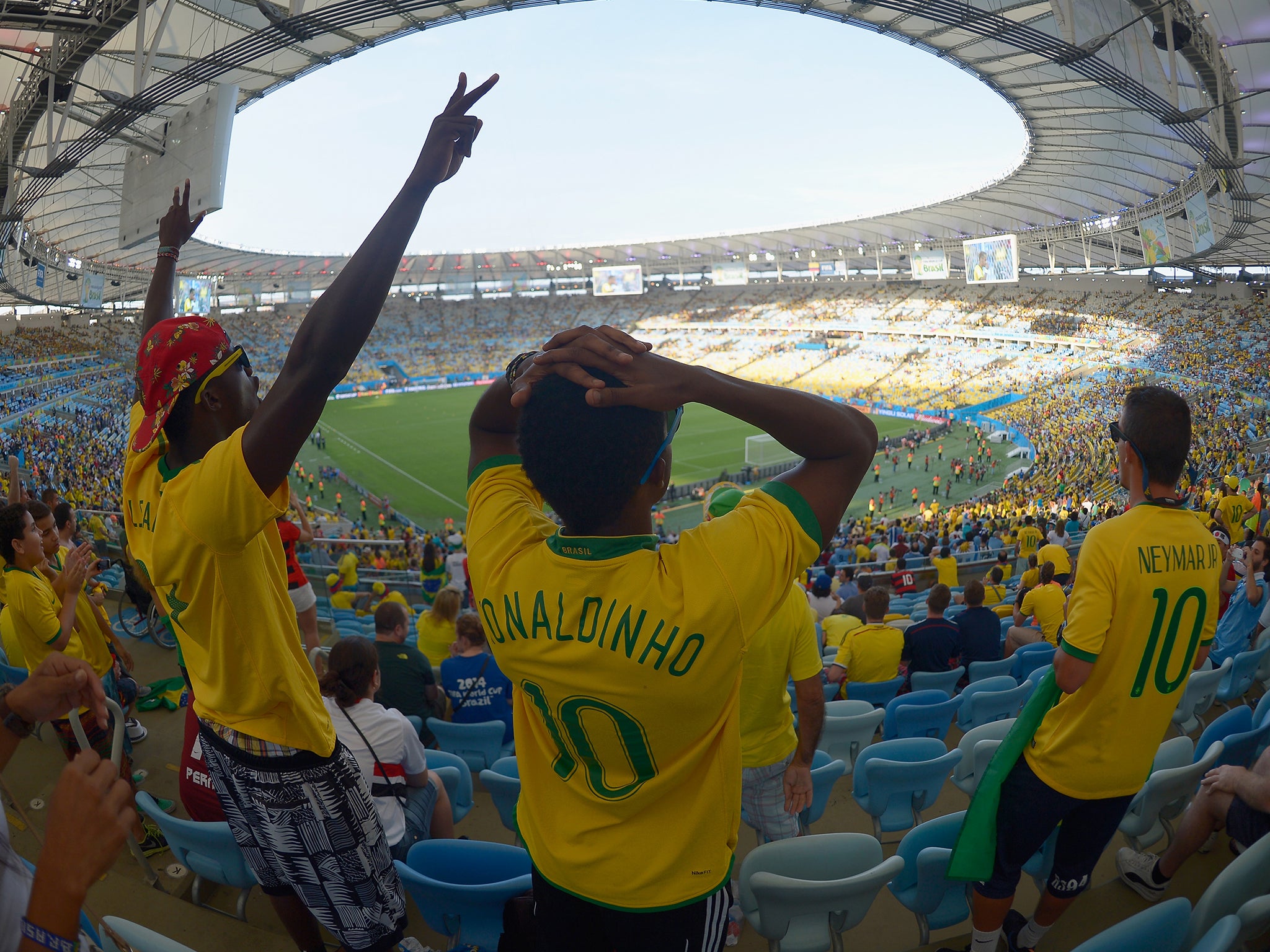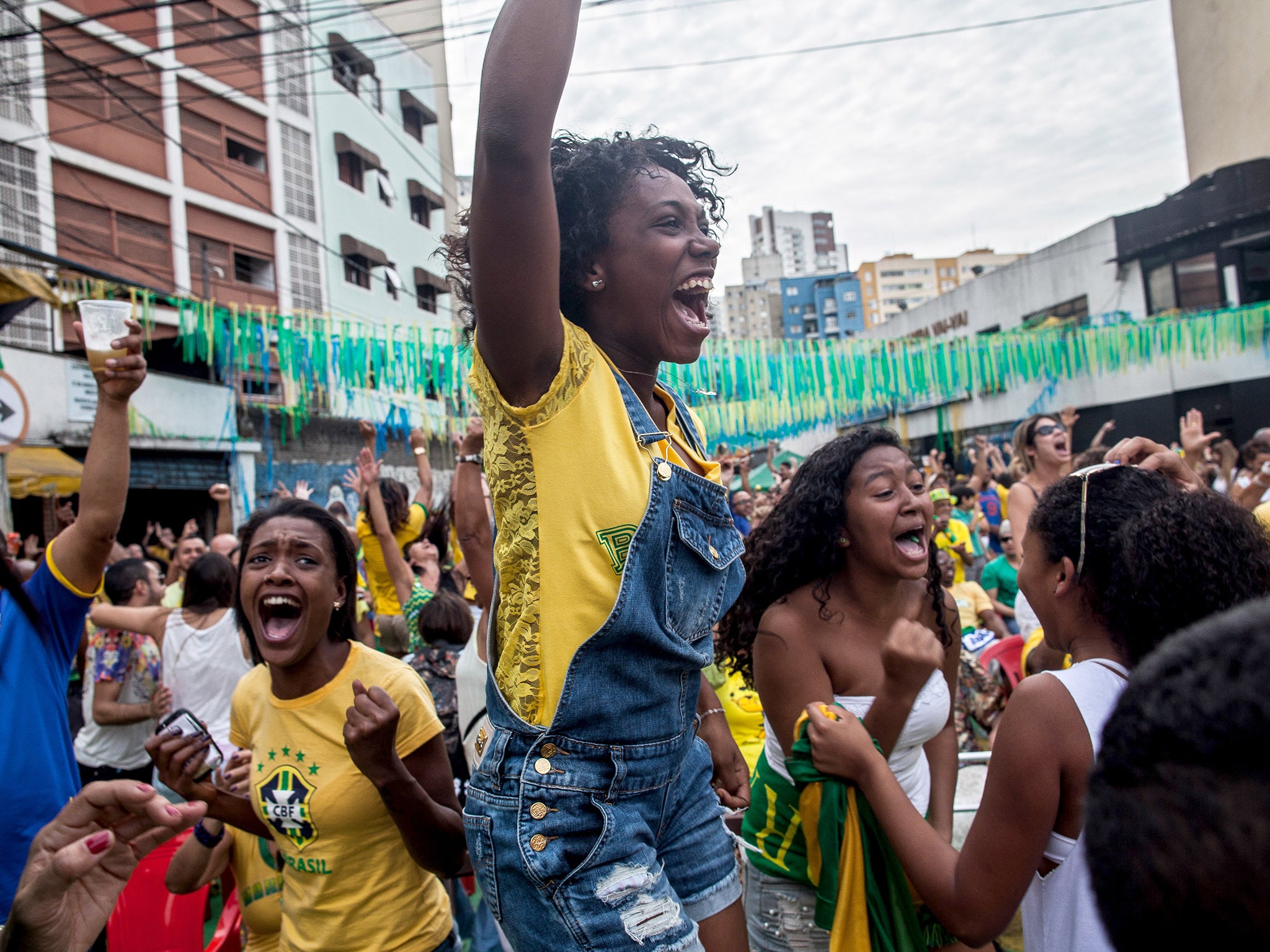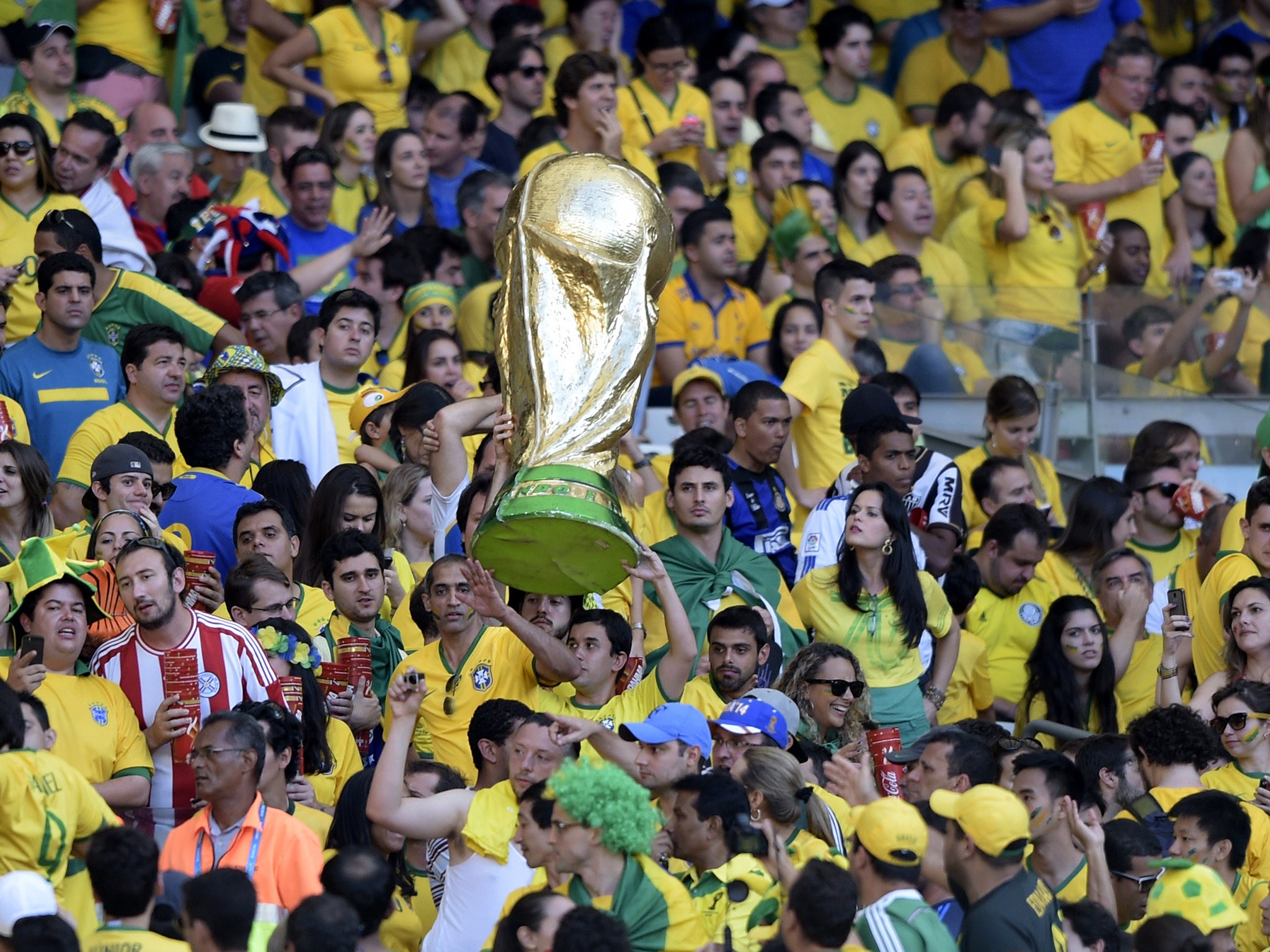Alex Bellos World Cup 2014 column: The lack of vocal support for Brazil has exposed national divides
Only the white upper middle class can afford tickets to see their team in action at this World Cup

Your support helps us to tell the story
From reproductive rights to climate change to Big Tech, The Independent is on the ground when the story is developing. Whether it's investigating the financials of Elon Musk's pro-Trump PAC or producing our latest documentary, 'The A Word', which shines a light on the American women fighting for reproductive rights, we know how important it is to parse out the facts from the messaging.
At such a critical moment in US history, we need reporters on the ground. Your donation allows us to keep sending journalists to speak to both sides of the story.
The Independent is trusted by Americans across the entire political spectrum. And unlike many other quality news outlets, we choose not to lock Americans out of our reporting and analysis with paywalls. We believe quality journalism should be available to everyone, paid for by those who can afford it.
Your support makes all the difference.Each time Brazil have started a game at this World Cup the fans in the stadium have stood up and sung the national anthem a cappella, making a rousing wall of sound that makes your hair stand on edge. The practice of singing beyond the recorded musical accompaniment started at the Confederations Cup last year, where it was seen as a powerful incentive for the team and a statement of unity at a time when thousands were protesting outside the stadiums.
Yet, at the four matches Brazil have played so far, after the dramatic opening chorus the home fans have barely made any noise at all – certainly not compared with passionate and loud chants from the supporters of the other South American teams. The underwhelming performance of Brazilian fans has become a point of concern. Public opinion is that, rather than being an asset for Brazil to be playing at home, it has become a problem.
“There is a lack of mutual synchronicity between the national team and the fans in the stadiums,” says the columnist and ESPN pundit Antero Greco. “The footballers are not playing well and the fans are silent. The stadium is really quiet and the national team doesn’t feel the support that they expect in difficult moments. It is a vicious circle that will be difficult to break.”
Since Brazil’s first game against Croatia, in Sao Paulo, the behaviour and composition of the Brazilian fans has been the subject of controversy. Brazil is a mixed-raced country but pretty much the only black Brazilian faces at the stadiums have been the players, in all four cities they have played in. Tickets are affordable only to the upper middle class, which is almost exclusively white. Says Greco: “In World Cups, families go to the stadiums. It looks lovely, but they are a public who are not used to feeling the tension in a game. The prevailing view is that the people who go are treating the football in the same way they would treat a musical, a tennis match or a trip to the mall.”

The issue of wealthy, fair-weather fans filling stadiums is common to all World Cups, but it has provoked much soul-searching here because of the role of football in the creation of national identity, the history of racial miscegenation, and the huge discrepancies between rich and poor.
At the Croatia match, one of the few times a chant could be heard was when the screens showed an image of President Dilma Rousseff celebrating a goal. The chant, an obscene insult, became one of the main talking points of the first week of the tournament, denounced on all sides of the political spectrum as unbefitting of the occasion. What do the richest people in the country’s richest city who managed to get World Cup tickets have to complain about?

When other South American countries began their games, their fans copied the hosts in singing their anthems a cappella, but kept on cheering all through the 90 minutes. Brazilian newspapers and TV suggested one reason the Brazilian fans were so quiet was there is only one national chant, which goes “Eu sou brasileiro, com muito orgulho, com muito amor” – I’m Brazilian, with lots of pride, with lots of love – which gets boring to sing again and again. Newspapers printed suggestions for new tunes. Coach Luiz Felipe Scolari told the main news programme on Globo, the largest TV station, that he agreed the fans lacked a song everyone could join in with, and suggested the samba song “Ta escrito”, which the squad sings a lot together. “They love that song,” he said.
Some fans have made it a mission to inspire the crowds. Victor Machado, aged 29, and a group of his friends printed 40,000 flyers with new songs to cheer the team, and distributed them before Brazil’s match against Chile. Did it work? “The Brazil support was better than in the other games, but still it is so much worse than what it should be,” he says, adding that a major issue was Fifa’s ban on musical instruments, since Brazilians are used to having accompaniment during games.
At the beginning of last Saturday’s game, the Brazilian fans booed the Chilean anthem, which drew criticism as unsporting and rude. Once the match began, the players made signs to the crowd to encourage them to cheer. But in the second half, with Chile dominating, the crowd barely reacted, even though Brazilians made up about 50,000 of the 58,000 present. “It’s sad, but it’s true. The Brazilian national team is not the priority of the fans in the stadium, and won’t be,” wrote Jose Antonio Lima on the blog Esporte Fino. “The players need to understand this and look for motivation and confidence within the squad. Since they are certainly not going to get it from the stands.”
Alex Bellos is the author of ‘Futebol: the Brazilian Way of Life’
Join our commenting forum
Join thought-provoking conversations, follow other Independent readers and see their replies
Comments